Last week-end my wife and I joined Dan Castellano and some of his friends to do some
volunteering in Ishinomaki with the NGO JEN. Ishinomaki is a port and one of the cities that
have been the most devastated by the earthquake/tsunami of the 11th of March. It's a city
about the size [160000 people] of my hometown Le Havre in France which is also a port. It is
said that about 10000 persons lost their life in this area only.
I upload
the following
photos and videos to encourage those who can go over there and give some help.
Giving
money
is good of course if you can but now they also really need some man(woman)power to help them to
clean-up and fix what can be. And the problem is that, time passing we kind of forget them up there.
Three months after even if some good progress have been made (I've been told), the amount of work
needed is still colossal.
There are different organizations welcoming volunteers, the
two I
know for now are JEN and Peace-boat. We joined JEN as Dan was already in contact with them
and already volunteered during the golden-week.
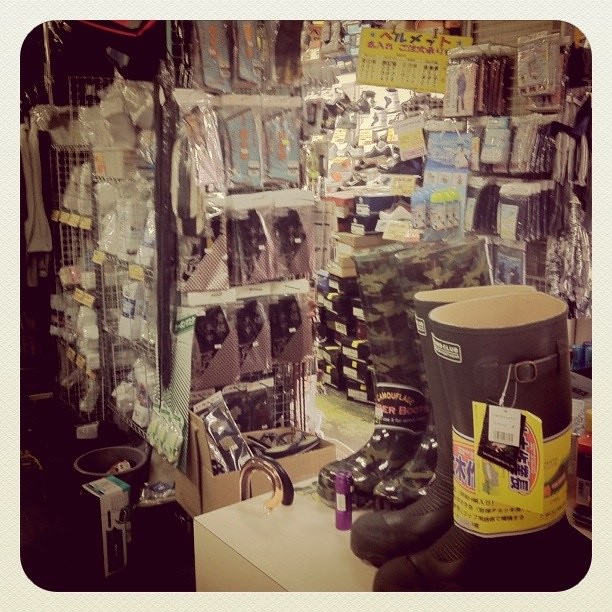
Essentials to bring are : sunscreen, sleeping bag, working clothes, thick rubber gloves, reenforced boots, rain coat, goggles and most needed, masks [not the small ones we used for flu but the one used in construction for example. There are few types]. Anyway organizations are providing a list.

Of course you have to pay for your transportation. We got a night bus departing from Shinjuku and Shibuya at about midnight on friday night to be in Ishinomaki at about 6:30 in the morning [cost is only 5000 yens]... Then we reached by taxi the house welcoming the volunteers to change our clothes to get ready for our first day.



Our little group was composed of Japanese nationals and foreigners from their 30s to 60s, men and women. Anyone can find a task to do. Our job for the 2 days was to clean sludge from gutters.「側溝 そっこう sokkou in Japanese. 」Yep, that's not sexy as Dan said but it has to be done. When seeing the massive destruction of the close area our task seemed a bit derisory but for the people living in this street it was certainly of a help.

Local people were already busy with building new green houses or taking care of their fields (for example) and they really appreciated we came to do help them. Some people even brought some ice-creams to us! Kids of the neighborhood came on their bikes to talk to us, as well as the elders. Simple communication is also a good way to cheer them up, of course they are curious to know where we come from etc... Just seeing us sweating for them gives them also some motivation I think.
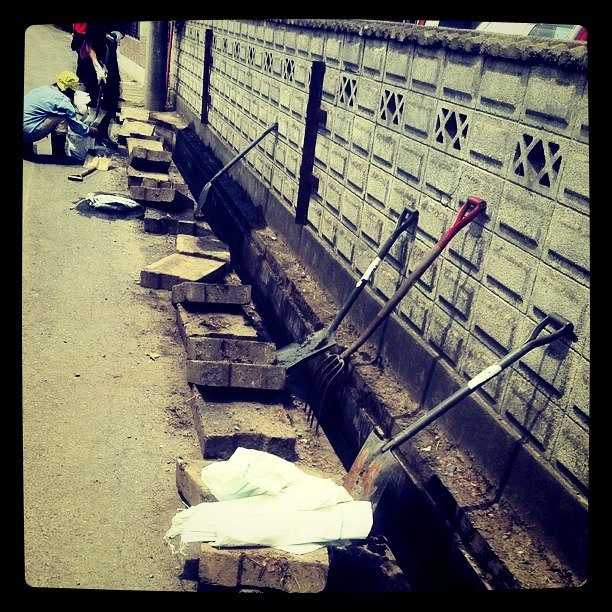
That was the job : pull the blocks, remove the $#it, put the blocks back.
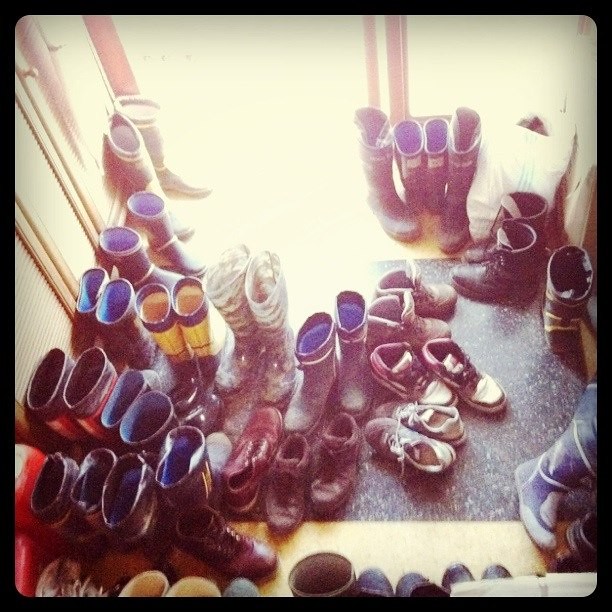
The work was intense and dirty but not too long in hours, basically from 9 to 15:30 with some breaks. JEN is not demanding too much to their volunteers [it's not the army...], they know that most of people coming are not construction workers usually and the muscles can be painful after the first day :-)

Essentials to bring are : sunscreen, sleeping bag, working clothes, thick rubber gloves, reenforced boots, rain coat, goggles and most needed, masks [not the small ones we used for flu but the one used in construction for example. There are few types]. Anyway organizations are providing a list.

Of course you have to pay for your transportation. We got a night bus departing from Shinjuku and Shibuya at about midnight on friday night to be in Ishinomaki at about 6:30 in the morning [cost is only 5000 yens]... Then we reached by taxi the house welcoming the volunteers to change our clothes to get ready for our first day.



Our little group was composed of Japanese nationals and foreigners from their 30s to 60s, men and women. Anyone can find a task to do. Our job for the 2 days was to clean sludge from gutters.「側溝 そっこう sokkou in Japanese. 」Yep, that's not sexy as Dan said but it has to be done. When seeing the massive destruction of the close area our task seemed a bit derisory but for the people living in this street it was certainly of a help.

Local people were already busy with building new green houses or taking care of their fields (for example) and they really appreciated we came to do help them. Some people even brought some ice-creams to us! Kids of the neighborhood came on their bikes to talk to us, as well as the elders. Simple communication is also a good way to cheer them up, of course they are curious to know where we come from etc... Just seeing us sweating for them gives them also some motivation I think.

That was the job : pull the blocks, remove the $#it, put the blocks back.

The work was intense and dirty but not too long in hours, basically from 9 to 15:30 with some breaks. JEN is not demanding too much to their volunteers [it's not the army...], they know that most of people coming are not construction workers usually and the muscles can be painful after the first day :-)
After the work, no shower where we were staying so better to
bring some wet tissues for basic clean-up!! That something that could be improve with locals that
still have their house untouched.
Here is the area where we worked :

Here is the area where we worked :

After our first day of work I took the following pictures about
10 mn by walk from where we were working.

[this is the opening hours and menus of the day for lunch and dinner at the gymnasium welcoming people]

[this is the opening hours and menus of the day for lunch and dinner at the gymnasium welcoming people]
It is complete different situation in this area, most of the houses will be
flattened with bulldozers I guess. Sometimes though people are still living on the second floor of
their house, first floor almost not existing anymore.
Probably people that don't want to live
anymore in the gymnasium welcoming the victims. Honestly I found that dangerous because there are
still small quakes [we had one sudden shock just under our feet the first day, quite different than
when in Tokyo].
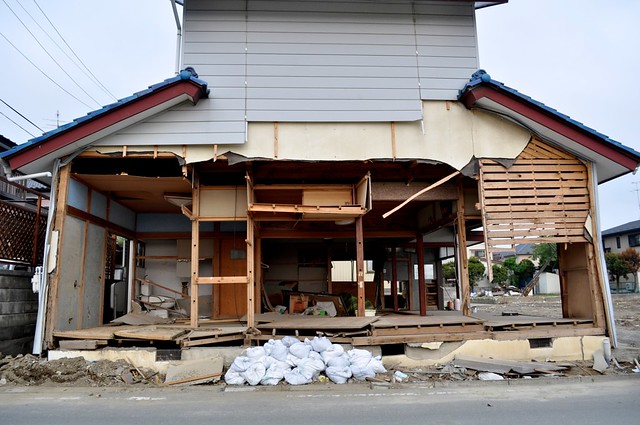
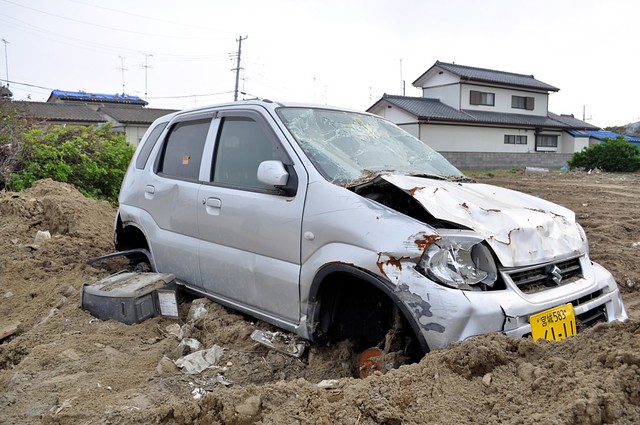
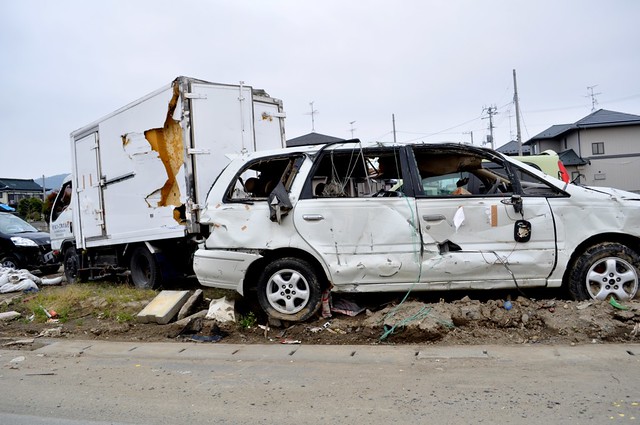
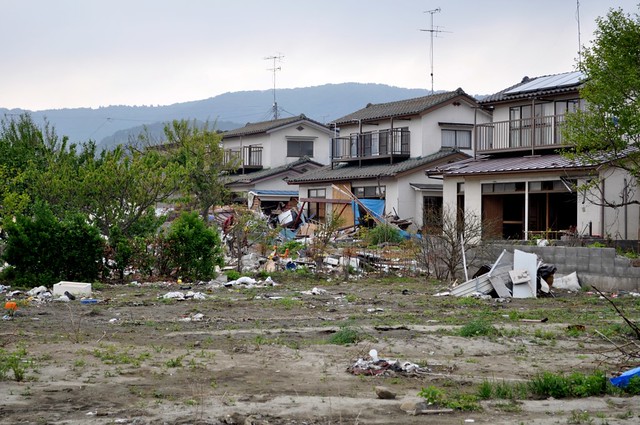

Previous volunteers have certainly moved these tatamis out... watered they can weight more than 100kg each...


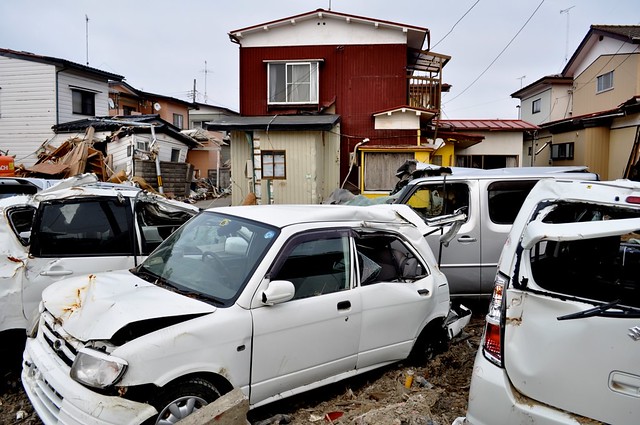
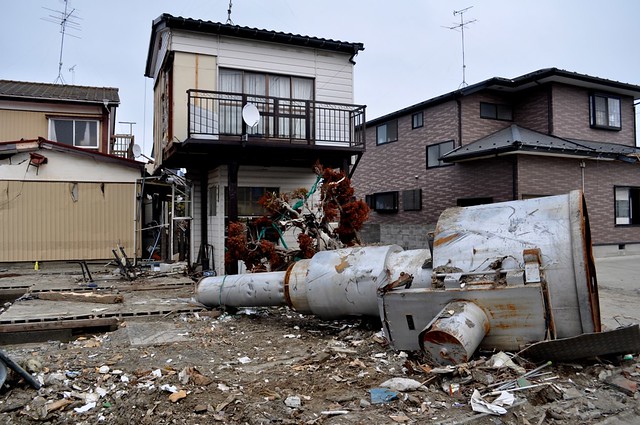
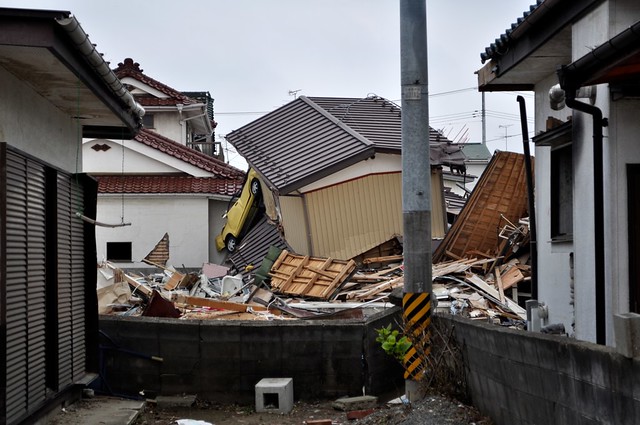
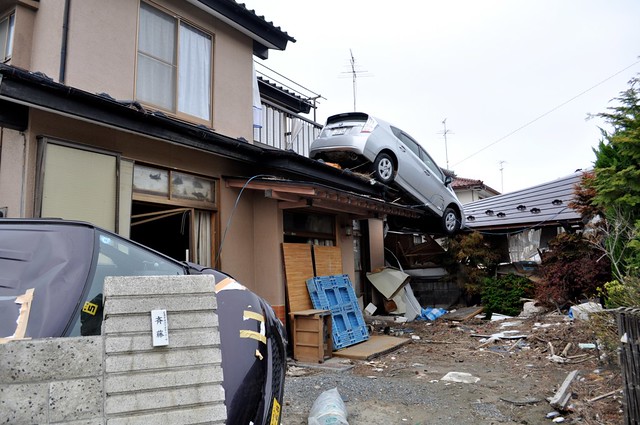
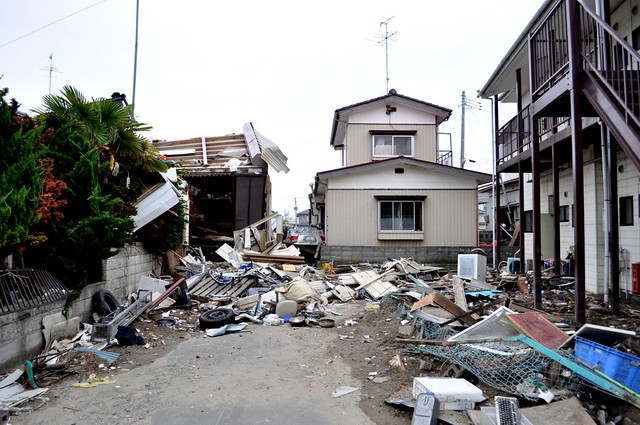


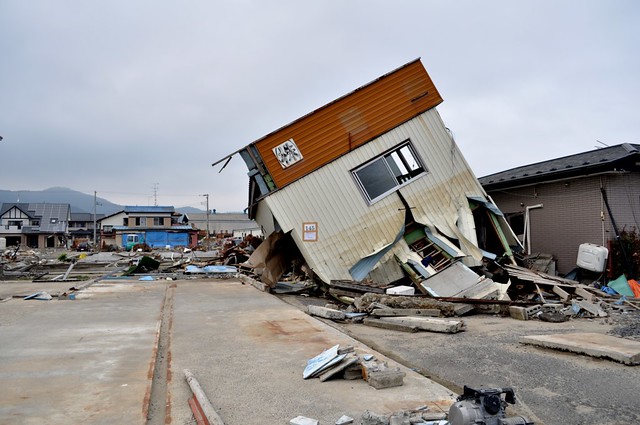

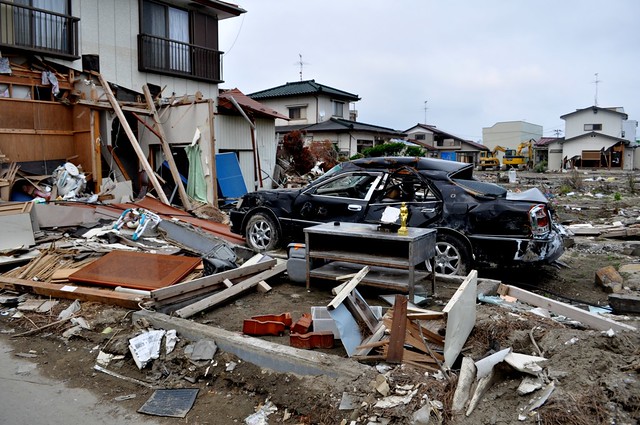

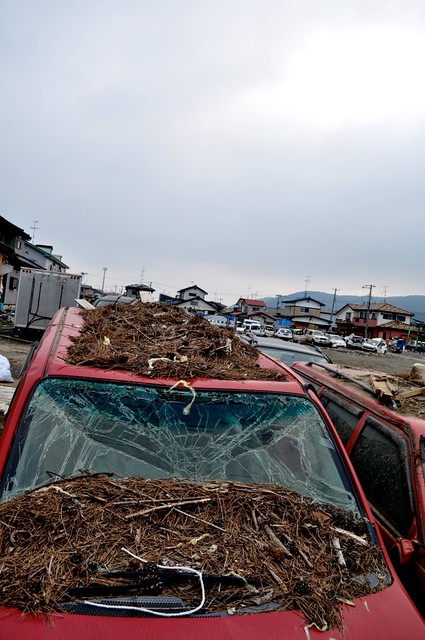
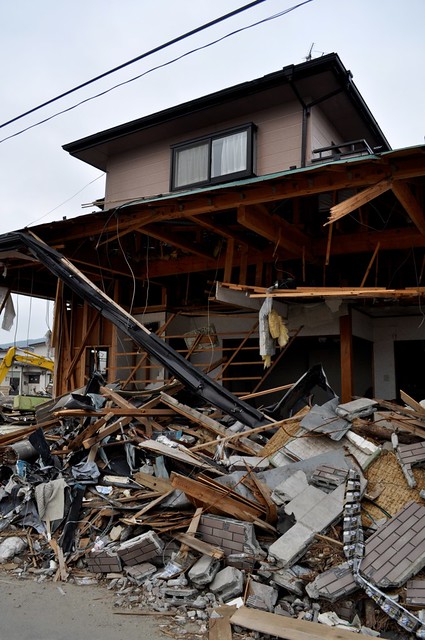
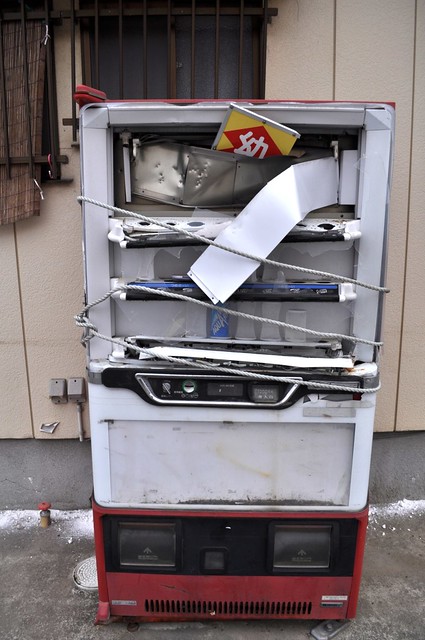





Previous volunteers have certainly moved these tatamis out... watered they can weight more than 100kg each...
















After the second
day, the JEN staff picked us to show us other parts of the city that were destroyed like the port or
a big paper fabric. I took the following video on our way back to the station.
It's only 5mn but it seems long (and yes there is no sound). And it's only small percentage of the dammages.

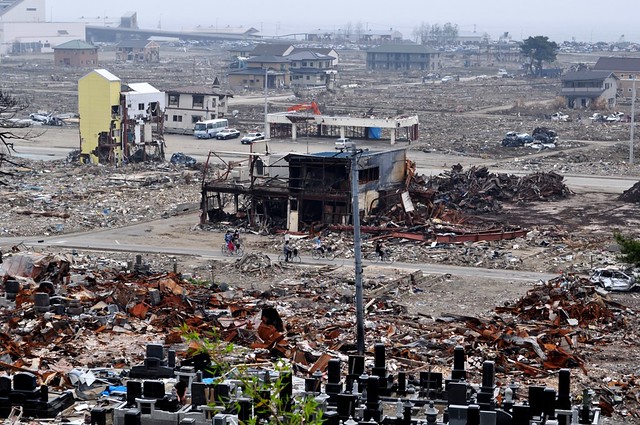

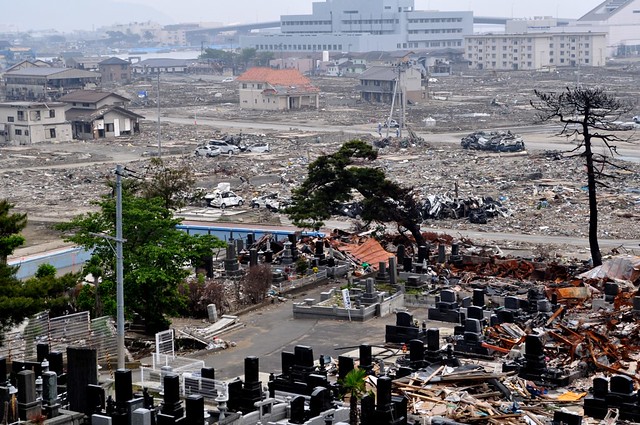
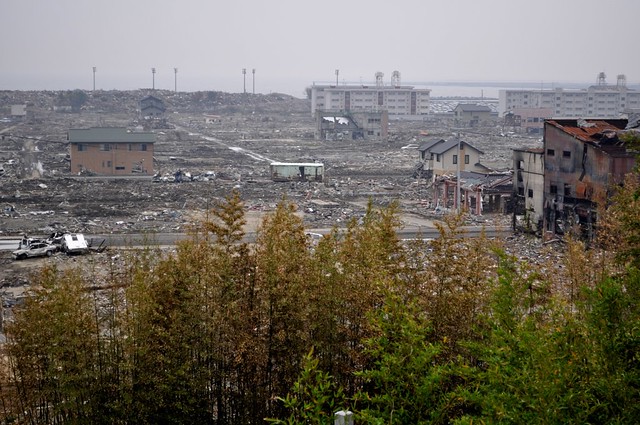
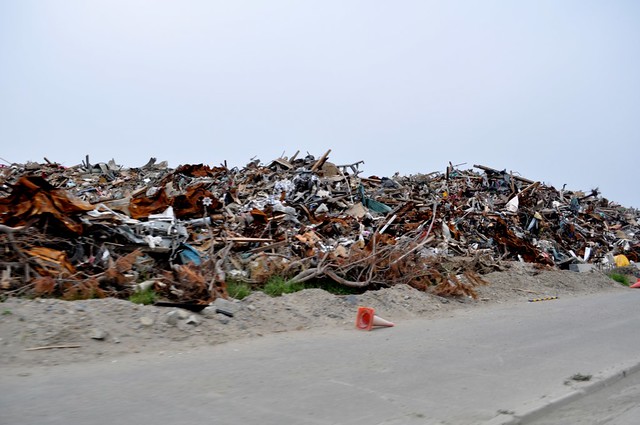
This one of the piles made of the collected materials... It is about 4-5m high and is more than 1km long... And there are other ones of course.


On the port that was certainly some fish factory or something...

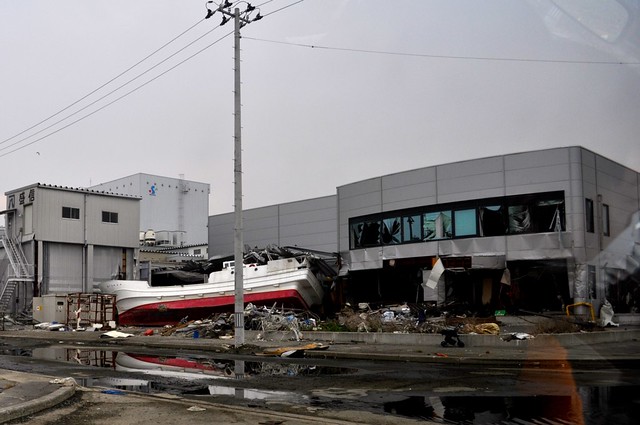

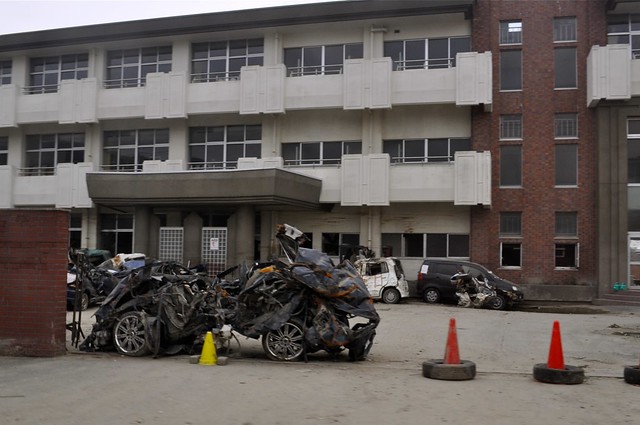
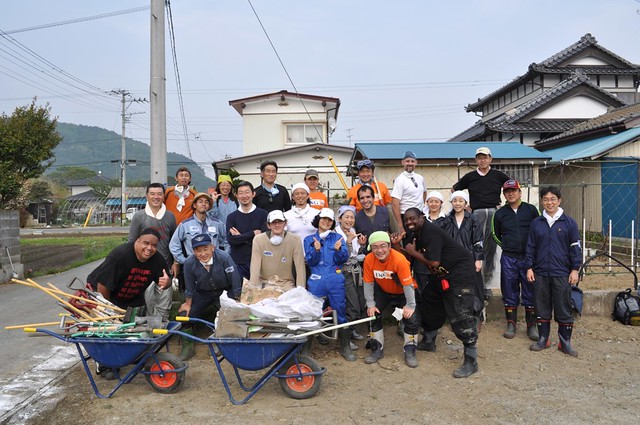
It's only 5mn but it seems long (and yes there is no sound). And it's only small percentage of the dammages.






This one of the piles made of the collected materials... It is about 4-5m high and is more than 1km long... And there are other ones of course.


On the port that was certainly some fish factory or something...





To finish with
here is our group picture. It's weird to say that but all in all despite the hard work, we had some
good times and fun during this week-end, we met people, did our job and I must say drank some good
sake on the saturday night [I also virtually lost everything I had at poker but that's an other
story... :-)]
If you have any questions about volunteering don't hesitate to ask
bellow.
If you want to make some donation towards the earthquake/tsunami/nuclear plant
victims, here are some few links (If you have some good ones, you can add them in the comments)
: